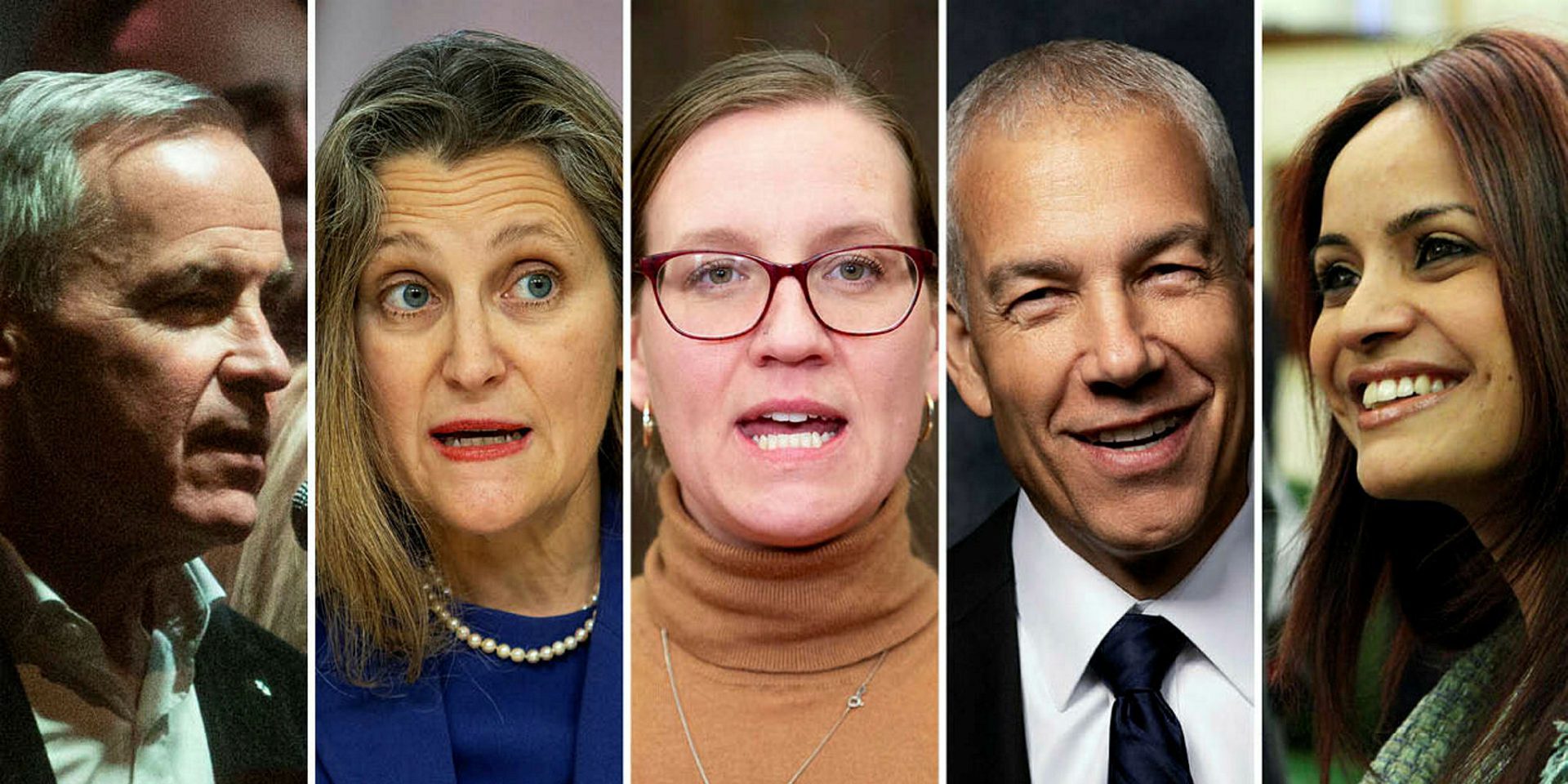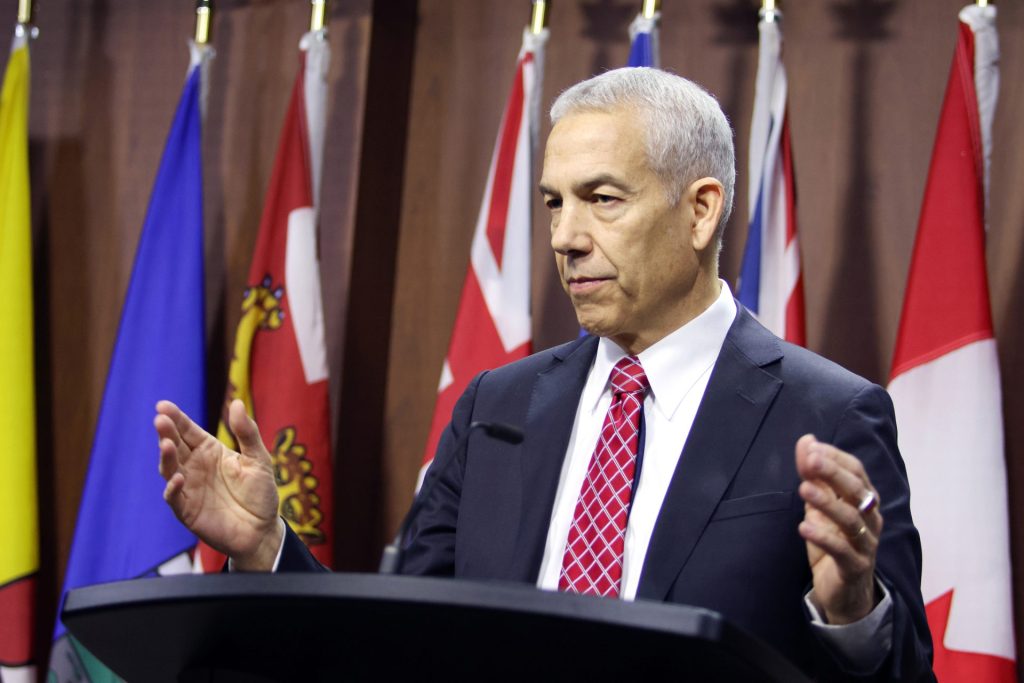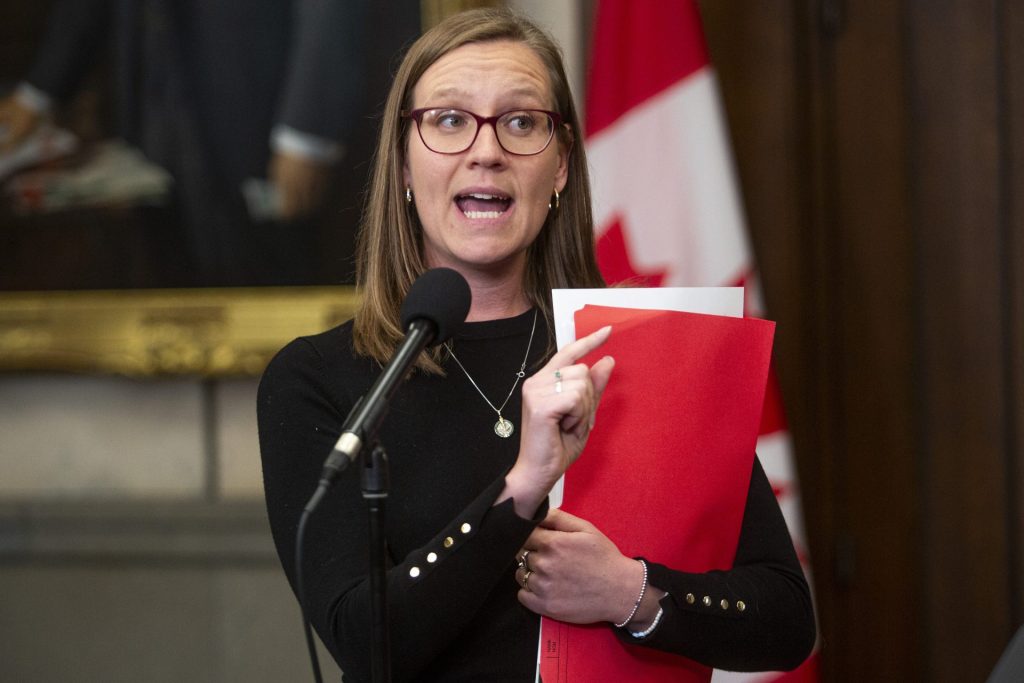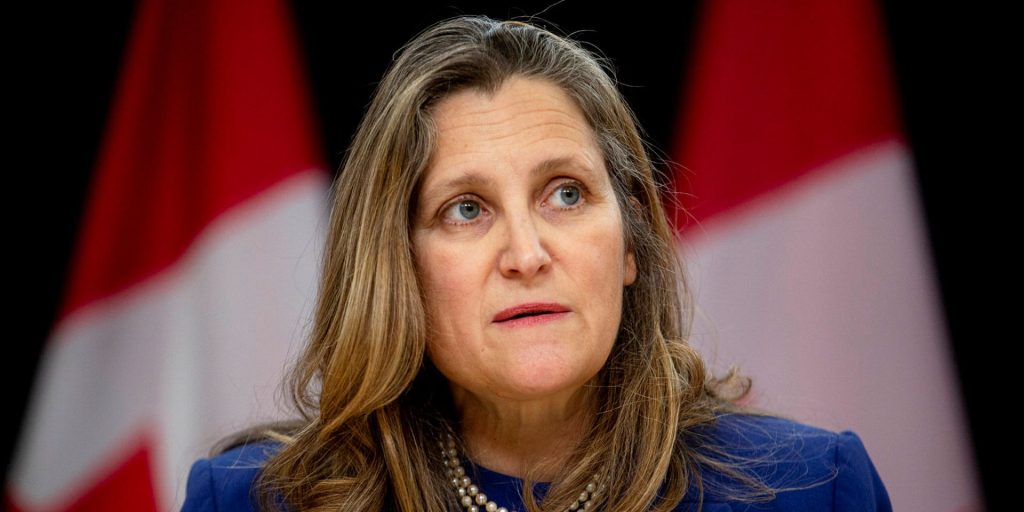Liberal candidates’ procurement pitches fail to address the long-standing issues, say observers

As the March 9 Liberal leadership vote nears, three of the five candidates have proposed changes to Canada’s problem-plagued procurement system where billions of taxpayer dollars are at stake every year. With ideas ranging from appointing a “procurement czar,” to “intelligent” procurement floating around, experts warn that the candidates fail to fully grasp the challenges, and—in some cases—risk making the system worse.
Baylis pledges ‘intelligent procurement’ to reform federal spending
Businessman and former Montreal Liberal MP Frank Baylis told The Hill Times in a Feb. 12 interview that his vision of “intelligent procurement” refers to long-term planning that prioritizes supporting Canadian industries.
“We tend to bounce along. One day we need this, the next day we need that. There’s no overarching objective,” Baylis said. “I want it to be part of a broader-based industrial policy, intelligently applied to help our industries.”

“A lot of times, government procurement processes say, ‘Well, this one’s 10 cents cheaper.’ Yeah, but it [only] saves you $3 down the line. There’s no thought process going into one of the larger implications of this procurement,” Baylis argued.
Highlighting that Canada’s military procurement struggles are nothing new, Baylis argued that the government must move beyond short-term fixes. “Instead of just running out there and spending money helter-skelter, we’re going to start intelligently. We have immediate needs. We’ve had immediate needs for the last 30, 40 years. Nothing’s changed. We’re going to get there,” he said.
Baylis pointed to U.S. programs like the Defense Advanced Research Projects Agency and Biomedical Advanced Research and Development Authority as successful examples of how procurement can be used to fund research and innovation, eventually benefiting both national security and economic development.
He cited the Advanced Research Projects Agency Network—regarded as the precursor to the modern internet—which began as a public-private procurement project funded by the U.S. Department of Defense, and the U.S. Operation Warp Speed initiative, which expedited the procurement of multiple COVID-19 vaccine candidates, as examples of how federal procurement can be led strategically.
Baylis argued that if the Canadian government had a similar program in place, it could have avoided issues with emergency procurements—such as the problem-plagued ArriveCAN application—by working with pre-approved suppliers to develop solutions in response to the health crisis.
Government data shows that Baylis’ company, Baylis Medical Technologies Inc., was awarded three contracts with federal departments since 2019 primarily for medical and research-related services, and has received nearly $4.3-million in total.
Baylis argued that the looming United States-Canada trade war, ignited by American President Donald Trump’s tariff threats could be turned into a positive for Canada. “If we had all of our own manufacturing here, we could overcome that. It’s an opportunity for us to rethink how we do procurement from the federal government, and if we have our own industries here that can meet our needs,” he said.
Gould says a ‘procurement czar’ will help Canada reach NATO targets

Former government House leader Karina Gould (Burlington, Ont.) pledges to take a “focused and disciplined” approach to tackling long-standing inefficiencies in defence procurement, and prioritizing investments that will have immediate impact.
Gould’s campaign spokesperson Emily Jackson told The Hill Times in an email that they plan to achieve these broad objectives through “increased investment in personnel, streamlined procurement processes, and targeted spending that prioritizes preparedness.”
Gould’s initial proposal to appoint a “procurement czar” will be central in efforts. Jackson said the czar would have “direct oversight and a clear mandate to accelerate procurement.” The position will operate under Public Services and Procurement Canada but work directly with the Department of National Defence to “identify and resolve bottlenecks, push priority projects forward, eliminate unnecessary delays and ensure accountability in procurement decisions.”
“The goal is not to add another layer of bureaucracy, but to create a leadership position with the authority to move projects forward while maintaining transparency,” Jackson said.
Gould is also pledging to prioritize long-overdue equipment upgrades, with her immediate focus being on replacing aging aircraft, naval vessels and ground equipment, while accelerating delivery timelines for other delayed projects.
Jackson said Gould plans to implement meaningful salary increases to bring wages in line with those of public servants, and added that those raises would be funded through “a responsible reallocation of defence spending.”
‘Nice to see other campaigns get inspired by us’: Team Freeland
Former finance minister and deputy prime minister Chrystia Freeland (University–Rosedale, Ont.) has outlined the most detailed procurement plans so far, with a strong emphasis on defence.
“We announced many [proposed] changes to procurement over the past several weeks. It’s nice to see the other campaigns get inspired by us,” said Katherine Cuplinskas, Freeland’s campaign director of communications in an email to The Hill Times. Cuplinskas did not provide any further comments.

Freeland pledged to cut red tape to accelerate and streamline procurement, exempt defence procurement from Canadian International Trade Tribunal (CITT) oversight, use the government’s urgent operational requirement exemption on all defence procurement until the country reaches NATO’s two-per-cent target, and, implement a Defence Industrial Strategy to bring Canadian industry and the Armed Forces together.
She also committed to prioritizing Canadian companies over American counterparts in all government procurement, citing examples like choosing Telesat over Starlink, D2L over Google, and Bombardier over Boeing.
Freeland’s proposed plan to hit back at Trump’s tariffs also included procurement-related items such as directing all federal government agencies to stop purchasing any goods from the U.S., block American firms from bidding on Canadian federal procurement contracts, and ban them—and well as the U.S.-based branches of international firms—from all projects funded by the Canadian government. This would exclude defence contracts, which account for the largest procurements between the countries worth billions of dollars.
She also pledged to build made-in-Canada defence supply chains, to reduce the Armed Forces’ reliance on U.S. defence companies, and accelerate procurement.
“My government will spur the manufacturing of the technologies and tools the CAF needs here at home, including a focus on Canadian AI and quantum computing, Canadian rare earth minerals, Canadian drones, Canadian icebreakers, and Canadian ships,” Freeland said in a recent press release.
Former Bank of Canada governor Mike Carney’s team did not respond to The Hill Times’ questions around procurement by publication deadline.
Ruby Dhalla, who refers to herself as the “outsider” in the race, has not outlined her own procurement policies, but said in an email that the government’s federal procurement and trade policies “demand a thorough review.”
“Our commitment is to conduct a rigorous assessment of existing agreements … I will not make sweeping declarations without a full and comprehensive review of how current procurement policies,” she said.
Slogans over concrete solutions
Richard Shimooka, a defence procurement expert and senior fellow at the Macdonald-Laurier Institute, told The Hill Times in an interview that he has never heard of either a “procurement czar” or “intelligent procurement” as a term.
“To me, those sound more like just slogans. That doesn’t point to some sort of specific program or coherent body of thought that’s been put out there in this field,” Shimooka said. That comes down to Liberal leadership candidates not knowing what those real procurement issues are in defence, Shimooka added.
He said the “real issue” has been a lack of political will, with obvious changes not having been implemented. He also challenged the effectiveness of appointing a “procurement czar.”
“The idea that somehow a czar is going to do it … may have some potential,” he said. “But do they have the authority to overrule ministers?” he asked, adding that “based on our experience with how defence procurement has been run, that is unlikely to actually address the main issues.”
Shimooka said amongst all the candidates, Freeland has put forward an “actually serious platform” on defence procurement, but argued that even her proposals fail to address core issues. He pointed to Freeland’s record as finance minister, saying she previously “basically refused to go beyond what was put in Strong, Secure and Engaged. Now, she’s reversed her position.”
According to Shimooka, that shift is triggered by international pressure. “Trump’s tariffs made it clear that if we’re going to be a serious nation that takes our sovereignty and territorial integrity, we have to spend two per cent or beyond that.”
But he also cautioned that the wrong approach could be “seriously damaging” to the Canadian Forces. “I’m slightly fearful of the big rush to this economic nationalist argument that we want to develop a defence industry that—in some ways—is autarkic from foreign manufacturers, and that doesn’t help,” he said.
Trying to separate defence procurement from the American supply chain would be extremely difficult, and not the best option given Canada’s urgent need for new systems, Shimooka said. He noted there is a deep integration of the two countries’ defence industries and there is not a large base of alternatives for many critical systems, especially for more cutting-edge systems ones such as unmanned aerial vehicles, command and control systems, over-the-horizon radars, and sensors.
Sean Stephenson, a federal procurement expert at Dentons, said the Liberal candidates’ promises acknowledge the high-level issues in federal procurement but fail to offer any concrete ideas to address them with too much focus on military spending and the NATO cap.
“We need to find a way where it does not take us years and years and years in the procurement cycle to go about buying those things. First and foremost, defining clear goals, secondly, engaging in the market to swiftly identify who can provide what types of goods, is what we need,” Stephenson said.
Baylis “seems to be on the right track” with his pitch of creating a global industrial policy strategy, Stephenson said. And although the “procurement czar” is a foreign term for Stephenson, too, if that is a role focusing on expediting certain emergency procurements, Gould’s pitch would be welcomed across the procurement sphere, he said.
Exempting military procurement from the oversight of challenges in the CITT as Freeland suggests would be a “broad move,” and outright banning U.S. suppliers could lead to major challenges, Stephenson argued.
“Essentially the promise there is, we can be more efficient by being potentially less procedurally fair, or we can just exclude some people. I see some issues in that. We want a fair process, and a fair shake for Canadians, but also on the international level,” Stephenson said.
ikoca@hilltimes.com
The Hill Times






 LICENSING
LICENSING PODCAST
PODCAST ALERTS
ALERTS













